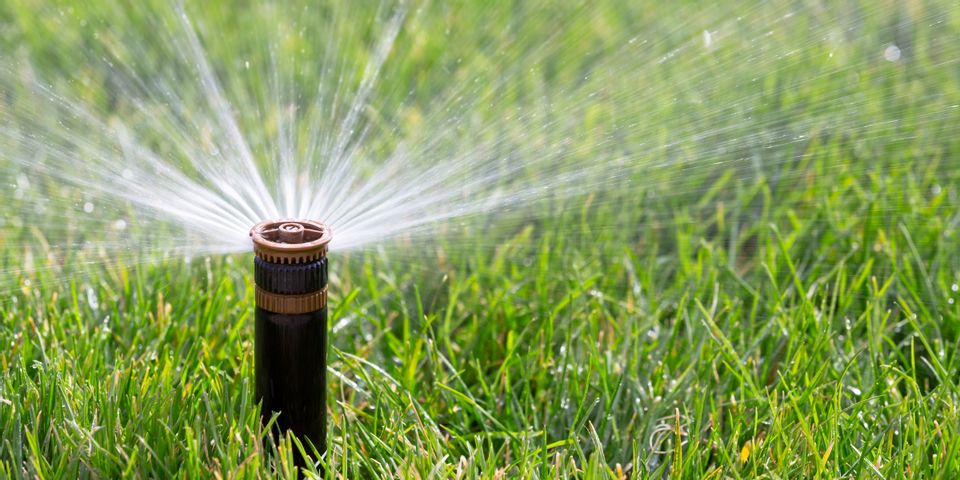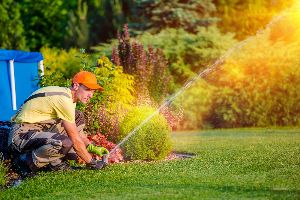3 Tips to Get Your Lawn Sprinkler System Ready for Spring

Once grass awakes from being dormant in winter, it will need to be irrigated to start growing again in spring. This means you should make sure your lawn sprinkler system is working before the warmer season arrives. To maximize equipment efficiency and performance, follow the advice outlined here.
How to Prepare Sprinklers for Spring
1. Refill Irrigation Pipes
Before winter, you likely drained the lawn sprinkler system to remove standing water in pipes. This is done so the liquid wouldn't freeze in the channels and cause them to burst. In preparation for spring, refill the pipes by opening the water main that serves the sprinklers.
Open the valve slowly, as this will allow time for trapped air to escape and prevent a water pressure spike that causes pipes to rupture. The ground should be unthawed, too. Otherwise, the water could freeze as it enters the cold lines. Fill the main irrigation line first before moving on to the mains for each section of the yard.
2. Test Each Line

Depending on the size of the yard, the lawn sprinkler system might have numerous zones. For example, an above-ground installation for a medium-sized lawn might feature eight zones, or areas served by separate sprinkler heads and control valves.
Turn on each zone of the irrigation system one at a time. As the water pressure stabilizes, you might notice water bubbling around the sprinkler heads or sporadic spraying. If these issues don't subside after a few minutes, there might be a leak somewhere in the water line, likely located under soggy areas of the yard.
3. Schedule an Inspection
Water leaking from multiple zones is a common problem unearthed while testing the system. Call an irrigation specialist for assistance. During an inspection, they will check each zone's valve diaphragm seal for corrosion, which could be the cause of seepage.
The part opens and closes to allow water to flow to a nozzle. A technician will also check for clogs inside the valves. Blockages can cause the valves to stick, which leads to pressure buildup that ruptures the lines. The technician will replace any defective parts found during the inspection.
They will also look for sunken sprinkler heads, which might be the reason zones aren't getting proper water coverage. The parts sink as they settle in the ground. The lawn irrigation professional will dig up the earth around sprinkler heads and carefully raise them to the correct height.
To have your lawn sprinkler system serviced, reach out to the professionals at Allgreen Irrigation Systems in Cumming, GA. Since 1996, the team has been providing irrigation installation and maintenance to keep Forsyth County clients' yards healthy while keeping water bills low. Learn more about available lawn irrigation services online and call (770) 888-9399 for a free estimate.
About the Business
Have a question? Ask the experts!
Send your question

